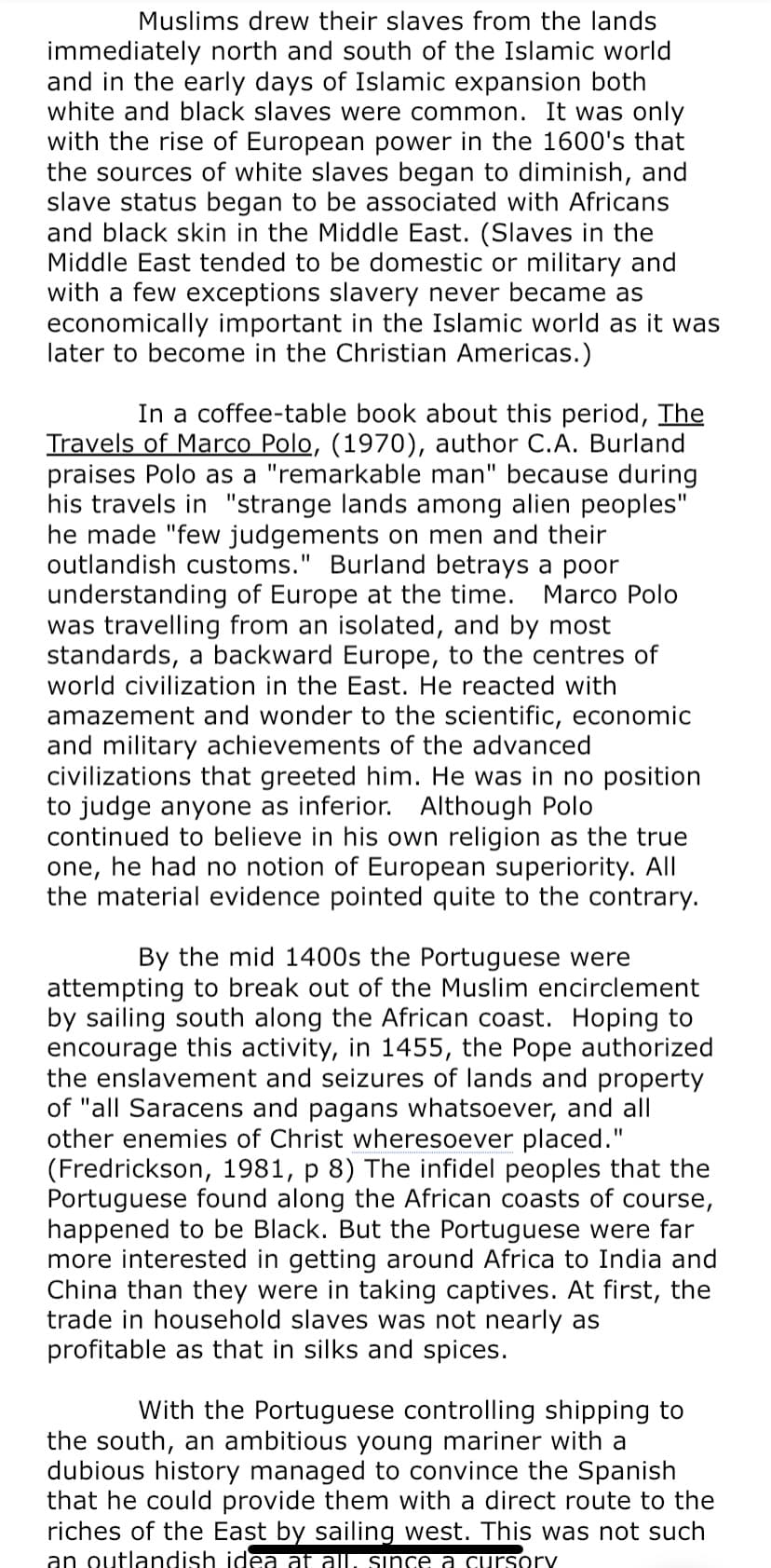How was slavery organized in the ancient world?
Related questions
Question
How was slavery organized in the ancient world?

Transcribed Image Text:Muslims drew their slaves from the lands
immediately north and south of the Islamic world
and in the early days of Islamic expansion both
white and black slaves were common. It was only
with the rise of European power in the 1600's that
the sources of white slaves began to diminish, and
slave status began to be associated with Africans
and black skin in the Middle East. (Slaves in the
Middle East tended to be domestic or military and
with a few exceptions slavery never became as
economically important in the Islamic world as it was
later to become in the Christian Americas.)
In a coffee-table book about this period, The
Travels of Marco Polo, (1970), author C.A. Burland
praises Polo as a "remarkable man" because during
his travels in "strange lands among alien peoples"
he made "few judgements on men and their
outlandish customs." Burland betrays a poor
understanding of Europe at the time.
was travelling from an isolated, and by most
standards, a backward Europe, to the centres of
world civilization in the East. He reacted with
Marco Polo
amazement and wonder to the scientific, economic
and military achievements of the advanced
civilizations that greeted him. He was in no position
to judge anyone as inferior. Although Polo
continued to believe in his own religion as the true
one, he had no notion of European superiority. All
the material evidence pointed quite to the contrary.
By the mid 1400s the Portuguese were
attempting to break out of the Muslim encirclement
by sailing south along the African coast. Hoping to
encourage this activity, in 1455, the Pope authorized
the enslavement and seizures of lands and property
of "all Saracens and pagans whatsoever, and all
other enemies of Christ wheresoever placed."
(Fredrickson, 1981, p 8) The infidel peoples that the
Portuguese found along the African co
happened to be Black. But the Portuguese were far
more interested in getting around Africa to India and
China than they were in taking captives. At first, the
trade in household slaves was not nearly as
profitable as that in silks and spices.
sts of course,
With the Portuguese controlling shipping to
the south, an ambitious young mariner with a
dubious history managed to convince the Spanish
that he could provide them with a direct route to the
riches of the East by sailing west. This was not such
an outlandish idea at ail since a cursory
Expert Solution
This question has been solved!
Explore an expertly crafted, step-by-step solution for a thorough understanding of key concepts.
Step by step
Solved in 2 steps
